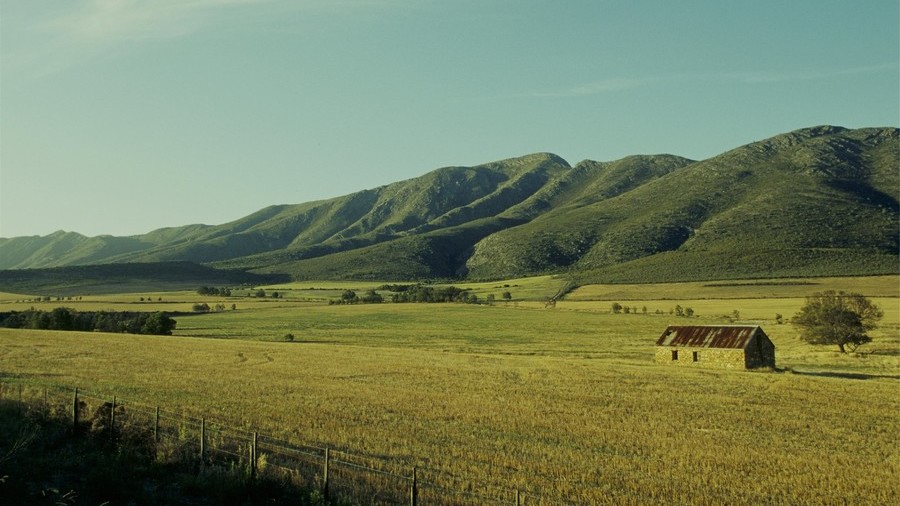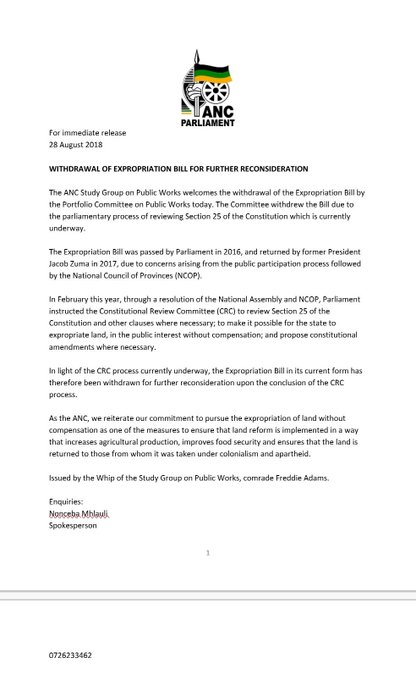South
Africa’s ruling ANC says land expropriation bill withdrawn for
further reconsideration

28
August, 2018
A
bill allowing the South African government to seize private land
without compensation has been withdrawn by the Portfolio Committee on
Public Works pending further study, according to the ruling African
National Congress.
In
2015, the ANC proposed a constitutional amendment allowing the
government to seize and redistribute land without any compensation to
its owners. The draft, which has not been adopted so far, evoked
widespread international outrage and multiple media reports of
alleged violence against white South African farmers, including
murders.
The
committee’s chairperson, Humphrey Mmemezi, said the bill was
referred to parliament on procedural grounds, but they couldn’t
duplicate a separate parliamentary process.
“If
we, as Parliament, resolve to hear the people of South Africa on that
important clause, it then goes without question that we must send the
bill back to Parliament,” he said, adding the committee had no
choice but to withdraw it.
However,
the ANC reiterated its commitment to pursue the country’s
controversial land reform program. The ruling party wants to
redistribute the land confiscated from white farmers to the black
citizens of the country. Since the end of apartheid in 1994, the ANC
has followed a “willing-seller, willing-buyer” model. Under the
plan, the government buys land from white landowners and
redistributes it among black citizens of the country. However, the
land reform program has not brought the results the ANC wanted.
South
African President Cyril Ramaphosa announced this month that his
government is enforcing a change in the constitution to allow the
expropriation of land without compensation. According to the ANC, the
white minority in the country still own most of the land more than
two decades after the end of apartheid.
Much
of the farmland in South Africa is owned by the country’s white
minority, also known as Afrikaners, descendants of Dutch and English
settlers. The former British colony instituted a policy of strict
racial segregation, known as apartheid, in 1948. It was formally
abolished in 1994.
The
ANC government denies there is a widespread or systematic campaign to
kill or expel white farmers, but maintains that major redistribution
is needed to correct the legacy of colonialism. A number of
Afrikaners have already emigrated, with as many as 15,000 Boers
recently expressing interest in settling in southern Russia.
There
has been a reported rise in violent attacks against farmers in South
Africa. There were 74 farm murders and 638 attacks, primarily against
white farmers, in 2016-17, according to data by minority rights group
AfriForum.
The
South African officials reportedly seized two farms last week from
owners who refused to accept the government-set compensation.




No comments:
Post a Comment
Note: only a member of this blog may post a comment.